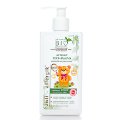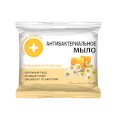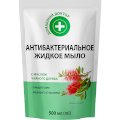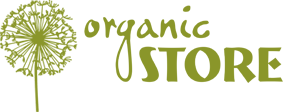 In 2020, the world faced with the COVID-19 pandemic, and hand hygiene has become more important than ever. A lot of people began to use household antiseptics, as well as diligently wash their hands with regular or antibacterial soap. And this is where the question arises: what kind of soap is better? Does antibacterial hand soap provide more reliable protection against pathogenic microbes and help to prevent infectious diseases? Let’s figure it out together.
In 2020, the world faced with the COVID-19 pandemic, and hand hygiene has become more important than ever. A lot of people began to use household antiseptics, as well as diligently wash their hands with regular or antibacterial soap. And this is where the question arises: what kind of soap is better? Does antibacterial hand soap provide more reliable protection against pathogenic microbes and help to prevent infectious diseases? Let’s figure it out together.
Regular hand washing is essential in protecting yourself from a number of infectious diseases, including COVID-19 caused by the novel coronavirus SARS-CoV-2. According to WHO, CDC, the FDA and other healthcare organizations, washing your hands with soap and water is the best way to prevent the spread of infection, and alcohol-based hand sanitisers should be reserved for situations when water and soap are unavailable.
Any soap works as a mechanical and chemical hand cleanser, allowing you to remove up to 99% of impurities: due to friction and exposure to fatty acids in the soap, dirt, grease and various kinds of bacteria, viruses and fungi are washed off the skin along with water, and your hands become clean.
Absolutely any soap will make your hands sufficiently clean for going on with your daily life. Of course, this is only true if you wash your hands properly, which includes lathering them thoroughly and scrubbing your hands for at least 20 seconds. But if regular soap is enough, why does antibacterial soap exist? Do you really need it in everyday life?
Antibacterial soap differs from regular soap in that it contains special antibacterial agents – substances that inhibit the growth and reproduction of various germs. There are dozens of antibacterial agents that can be found in soaps and other personal care products, but the best known one is probably triclosan.
Triclosan is a synthetic antibacterial and antifungal agent present in some consumer products, including liquid and bar soaps, detergents, toothpastes, mouthwashes, etc. It was developed in the 1960s and patented by Swiss company Ciba-Geigy in 1964. Triclosan was originally used as a hospital scrub but eventually became a common ingredient in consumer products.
When most people hear the expression “antibacterial soap”, they immediately assume that it is soap with triclosan, because it is the most widely marketed kind of antibacterial soap. However, triclosan-based antibacterial soap is actually becoming less and less common in many countries due to a number of concerns.
The thing is, triclosan is a broad-spectrum antibacterial agent, meaning that it is capable of killing not only pathogenic bacteria, but also beneficial ones. Because of this, regular use of antibacterial soap with triclosan can strip your skin of its natural protective flora. In addition, bacteria can develop tolerance to triclosan, which increases the risk of antimicrobial resistance in general. Finally, a number of studies have shown that triclosan is a possible endocrine disruptor.
Due to the above reasons, the United States Food and Drug Administration (FDA) banned over-the-counter consumer antiseptic washes containing triclosan and triclocarban (a similar antibacterial agent used in liquid soaps) in 2016. Although triclosan is still allowed in cosmetics in some other countries, many consumers are now wary of this ingredient and antibacterial soap in general.
Luckily, there are safer alternatives to triclosan that can be used in the production of antibacterial soaps. Effective antiseptics and disinfectants used in cosmetics include, but are not limited to, hydroxychlorodiphenyl ether (diclosan), chloroxylenol, iodine compounds, chlorhexidine gluconate, and polyhexamethylene biguanide.
Natural antibacterial ingredients deserve a special mention. They include various plant extracts and essential oils (tea tree, eucalyptus, sage, neem, and many more), propolis, and others. These natural antiseptics are great because they not only eliminate microbes, but also take care of the skin, stimulating its regeneration and providing protection from harmful environmental factors.
Regardless of its composition, antibacterial soap is not intended for frequent use. You should only use it to wash your hands in situations with a high risk of exposure to germs, for example, after taking care of an infected person, working in the garden, hiking, petting animals, etc. Besides, it makes sense to use antibacterial soap when one’s immune system is weakened or compromised, which is why such soap is often used in healthcare and social welfare institutions for children and elderly people.
In the above situations, you will benefit from using antibacterial soap, but it is important to protect your hands from dehydration and irritation by choosing a high-quality product. In our online shop Organic Store, you will find a great selection of antibacterial soaps produced by trustworthy brands. Their carefully balanced formulations not only eliminate pathogenic microbes, but also take great care of the skin, keeping it soft and hydrated.
Antibacterial Hand Soap in Our Store
Pharma Bio Laboratory Antibacterial Baby Soap, 250 ml |
Home Doctor Chamomile & Propolis Antibacterial Soap, 70 g |
Home Doctor Tea Tree Oil Antibacterial Liquid Soap, 460 ml |
